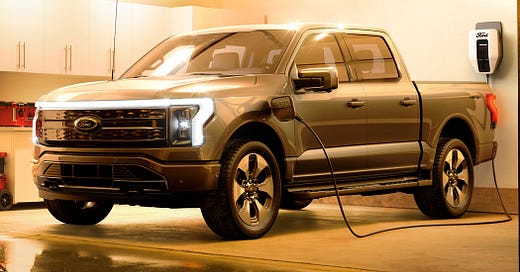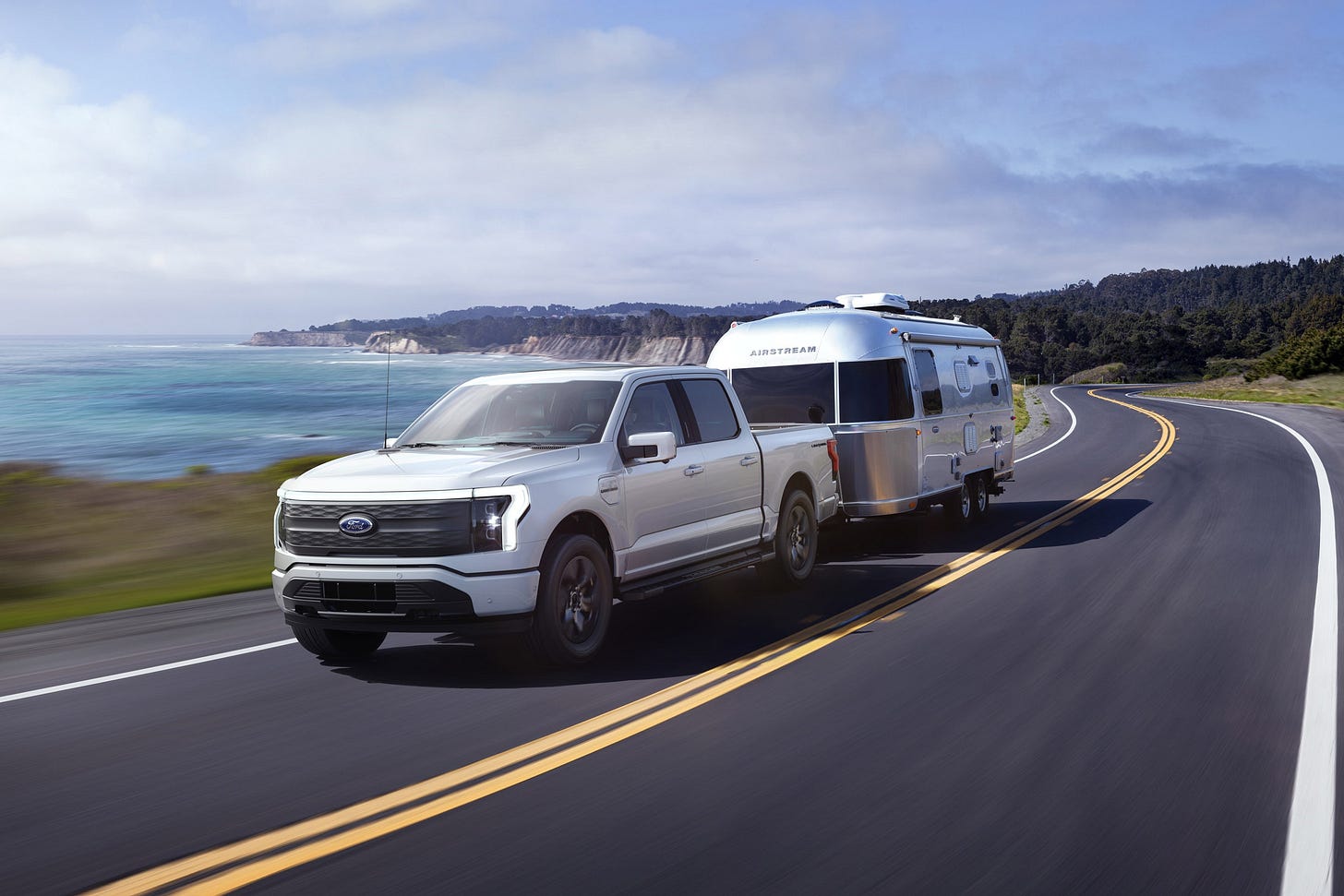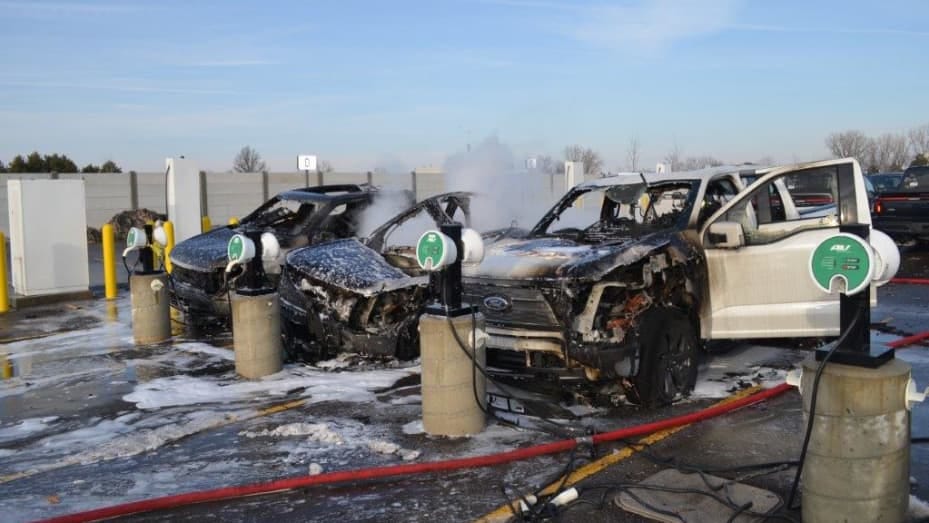Hauling Decreases Ford F-150 EV Pick-up Range By 25 %
Automotive Engineers Find Best Use is Hauling Leaves and Styrofoam
EV Friendly Study Reveals that Ford F-150 EV Range Falls Significantly with Heavy Loads.
No kidding?
1) The Lightning weighs 6,500 lbs, 35 percent more than the gas-powered model due to 1,800-pound battery.
2) Li battery has lowest energy density compared to other common energy sources
Read On:
ORLANDO (June 6, 2023) – When drivers load an electric pickup with heavy cargo, they make the vehicle work harder, significantly reducing the truck’s range. But by how much? AAA Automotive Engineering researchers recently tested the Ford F-150 Lightning, the electric version of the iconic best-selling American pickup, to determine the impact of payload on the range. When loaded with 1,400 pounds of sandbags, 110 pounds shy of its maximum capacity, the Lightning’s range dropped from 278 miles to 210 miles, a reduction of 24.5%.
“Our testing revealed a significant range reduction, but it’s important to note that the Lightning was loaded to near its maximum capacity,” said Greg Brannon, director of AAA Automotive Engineering. “Most buyers will likely use their Lightning with a lighter load, resulting in a much smaller range reduction.”
Good luck! No AC for You.
It’s also important to remember that the driving range of all vehicles, whether gas-powered or electric, is affected by weight. And as battery technology continues to improve, EV range will likely increase. However, even with current technology, electric vehicles are still more energy efficient than gas-powered vehicles regarding energy consumption.
The Ford Lightning’s range is less than its gas-burning cousin, which may get over 500 miles per tank unloaded. Buyers concerned about EV range should consider the driving they will be doing and choose the right vehicle for their needs. The difference, for now, is that it is easier to gas and go than stop and charge.
Why are batteries so heavy and range so limited? This is due to the low energy density of Li batteries (MJ/kg)
Li: 0.5 MJ/kg
Diesel/gas : 45-46 MJ/kg
Nuclear, E=mc^2, U-235, : 79,390,000 MJ/kg
Too bad hydrogen is so costly to collect, compress and transport, it has alot of energy content per kg. The 1st Law of Thermodynamics strikes again!
From CNBC : Ford F-150 Lightning fire footage highlights a growing EV risk
In general, heavier payloads will reduce the range of an EV. This is because the extra weight requires more energy to move. The type of driving also plays a role. Highway driving, which typically involves higher speeds and less regenerative braking, will further reduce range. Unlike gas-powered vehicles, which perform more efficiently at highway speeds, EVs thrive in urban driving conditions due to regenerative braking from more frequent stops. Regenerative brakes capture the energy from braking and convert it into the electrical power that charges the vehicle’s high-voltage battery. This electricity can then be stored in the car’s battery or power other electrical components.
Urban Cowboy Hauling Still Good
In the case of battery electric pickups used as work vehicles, permanent loads (such as equipment racks, toolboxes, and equipment trays built into the vehicle) will reduce the range at all times, even without additional cargo.
Please refer to the full report for methodology details, including specific testing equipment and test track characteristics.















I tracked it and a while and Teslas caught on fire at the same rate as Ford Pintos.
Hauling decreases the range on gas/diesel as well; it's just less impactful.